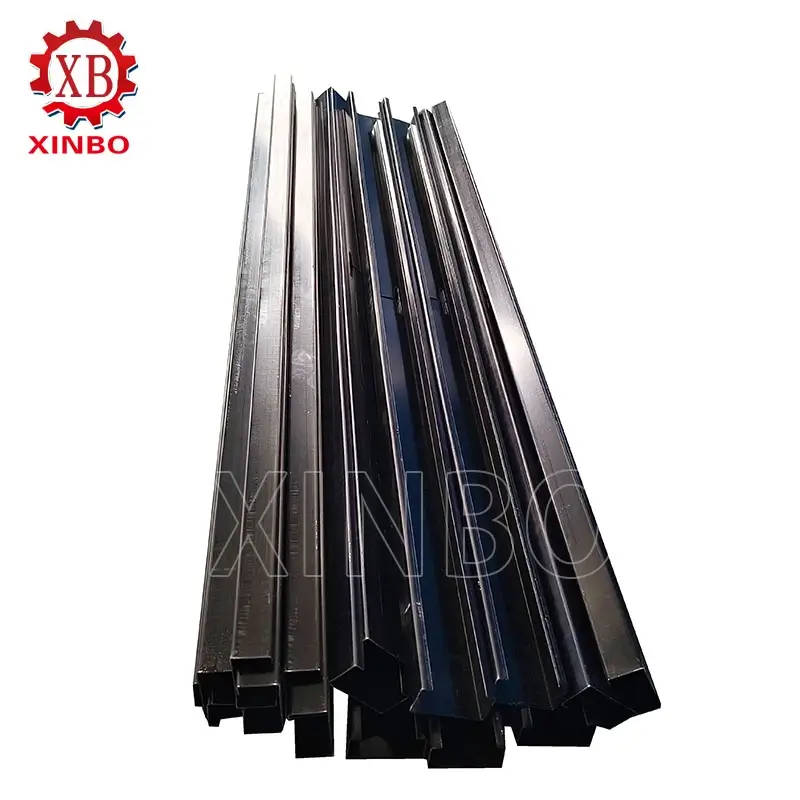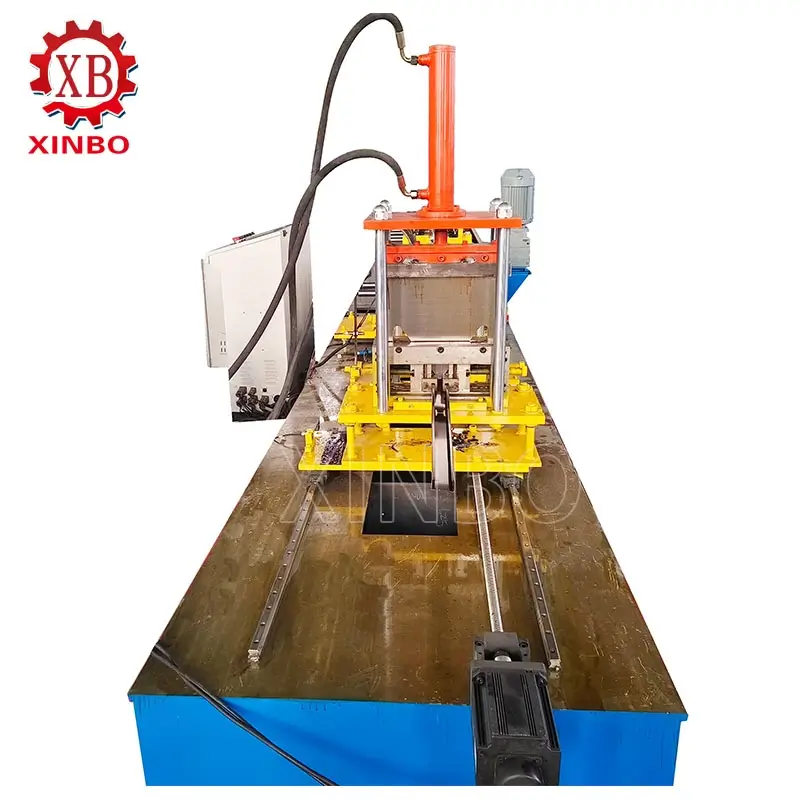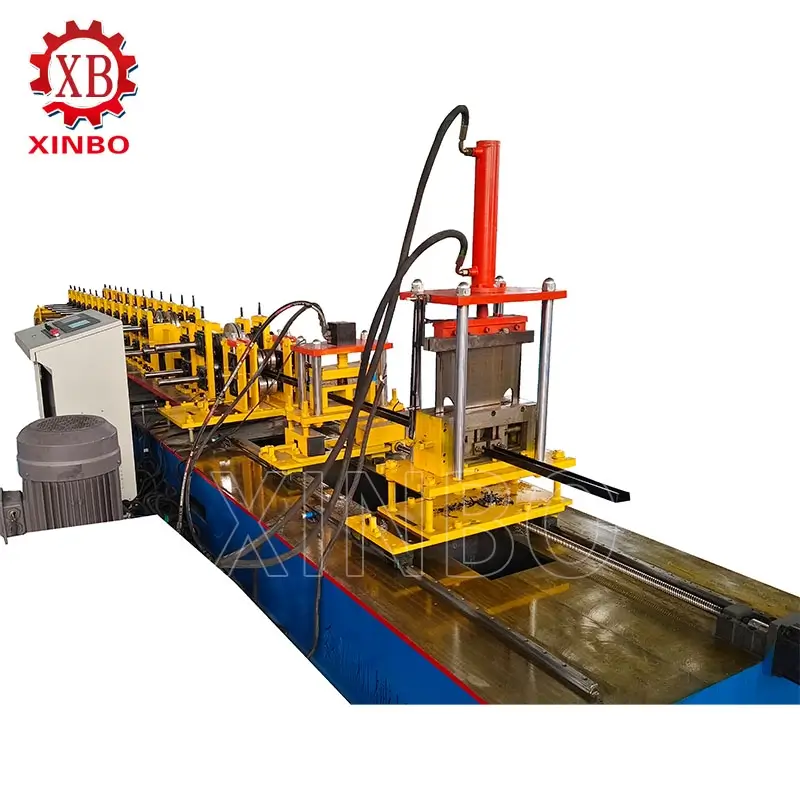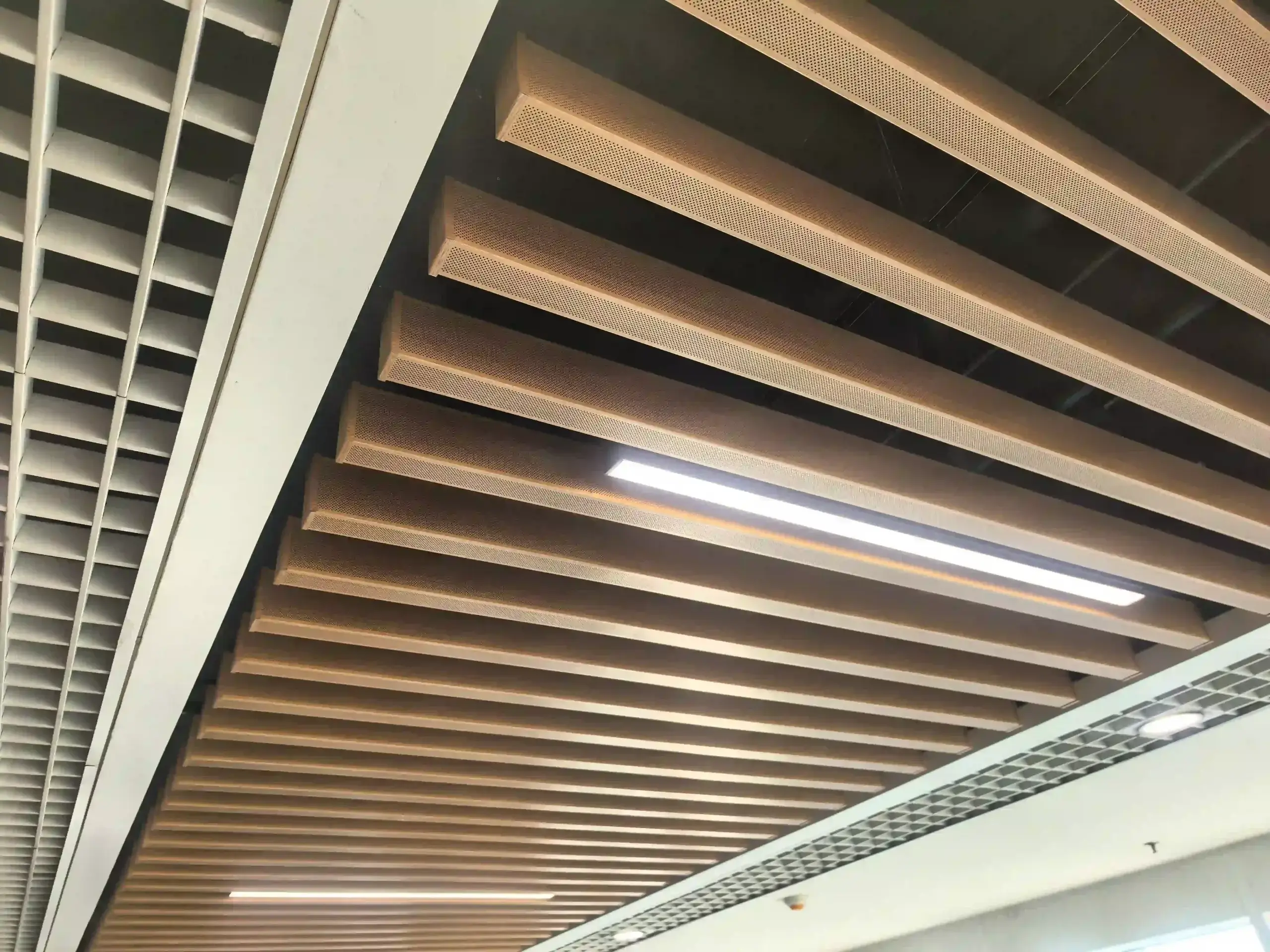Good quality
XinBo machine making CO. LTD is a professional manufacturer and exporter in roll forming machine,
VIEW MORE→In today’s fast-changing world of building design and interior work, suspended ceiling systems have become very common. They help create spaces that look nice and work well. These systems hide electrical wires, water pipes, and air ducts. They also make rooms quieter, safer from fire, and better at keeping warmth inside. The main equipment that produces strong and uniform ceiling frames is the C channel steel roll forming machine. This machine takes flat steel coils and turns them into sturdy C-shaped sections. Builders use these sections as furring channels, main runners, and cross tees.

Lightweight steel frames are now needed more than ever. People want greener buildings, and cities keep growing fast. A reliable C channel roll forming machine lets makers meet tough industry rules. It also helps them produce parts quicker and with less trouble.
This guide talks about how C channel forming really works. It explains why the machine matters so much for ceiling projects. Readers can see the clear benefits it offers. Contractors, metal shops, and material suppliers can find out how a long service life C channel roll making machine functions. This information helps everyone make smart choices, lower expenses, and get better results on every job.
img.C Channel Steel Roll Forming for Ceiling.webp
Roll forming is a cold-bending process. It lets factories turn out large numbers of complex metal shapes without stopping. Almost no material gets wasted. A C channel steel roll forming machine gradually bends galvanized or pre-painted steel strips. Thickness normally ranges from 0.4mm to 1.2mm. The result is accurate C profiles. Flanges stay between 20-50mm, and webs measure 50-150mm.
When compared to stamping or extrusion, roll forming shares the bending effort across many stations. Each station uses strong rollers made of Cr12MoV steel, HRC 58-62. Finished parts stay inside ±0.5mm tolerance.
For ceiling work, these machines create lightweight keels. The pieces snap together quickly to form grids. They support gypsum boards, acoustic tiles, or LED panels without any trouble.
With these features, a decorative C channel roll forming machine changes raw steel into ready frames. The profiles fit together perfectly. Ceilings end up straight and solid.
A skilled C channel forming machine manufacturer puts together strong mechanical parts and clever digital controls. The process moves step by step:
Solid mechanics and modern controls work side by side. The outcome is precise parts, fast output, and very little need for hands-on work.


A single machine serves many fields, so the return on investment comes quickly.
Daily: Clean rollers and check belts.
Weekly: Lubricate chains and gears; check alignment (±0.02mm). Monthly: Tighten bolts (M12, 50Nm); recalibrate encoders via PLC.
Quarterly: Replace hydraulic oil (ISO VG46); grind rollers if runout exceeds 0.05mm.
Annual: Full shaft inspection; update software for better fault records.
Keep shop humidity below 60% RH and train operators properly. Corrosion and overload stay away. Rollers then last 1–2 million meters, and downtime stays under 5%.
C channel roll forming machines will stay essential for smart, strong buildings.

The C channel steel roll forming machine sits at the heart of modern ceiling systems. It delivers accuracy, speed, and lasting strength. Perfect grids come together fast, and sturdy supports work in many projects. Companies save money, improve quality, and support green goals.
Fabricators and manufacturers who adopt this technology open doors to bigger opportunities around the world.
Galvanized steel (G60–G90) or pre-painted coils (0.4–1.0mm). Aluminum is excellent where weight and moisture are concerns.
Uniform shapes and exact hole spacing cut assembly time by 30–40%. Ceilings stay level without extra shims.
Q3: What speeds can a best C channel roll forming machine achieve? 20–40m/min for standard profiles; custom lines reach 50m/min.
Yes. Modular designs allow easy flange/web changes (50–150mm) and added punching or embossing for special grids.
Follow regular lubrication, alignment checks, oil changes, and use hardened rollers (HRC 60+).
Yes. Fast tooling changes let the same line make C studs and furring channels.
Boost ceiling production quality with XINBO’s C channel roll forming machines. Check the products on the XINBO Products page, ask for custom advice through XINBO Service, or learn the company story at About XINBO. Contact XINBO today for a free quote and upgrade the whole production process right away!

XinBo machine making CO. LTD is a professional manufacturer and exporter in roll forming machine,
VIEW MORE→

